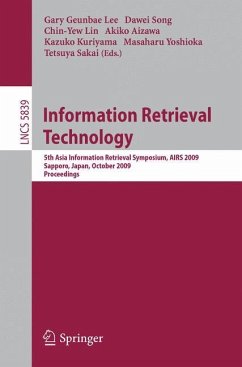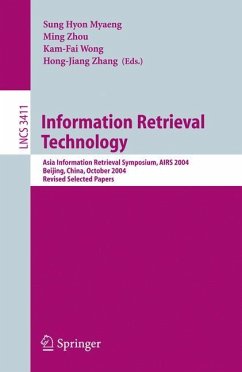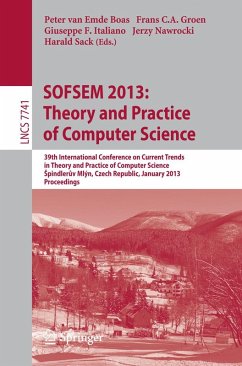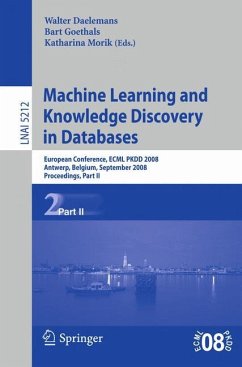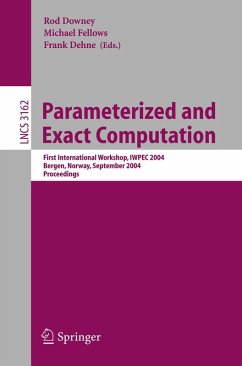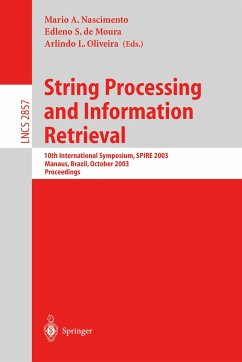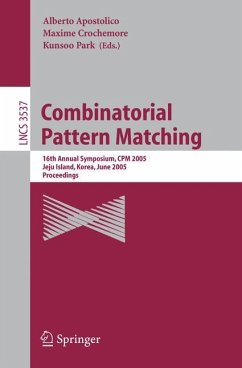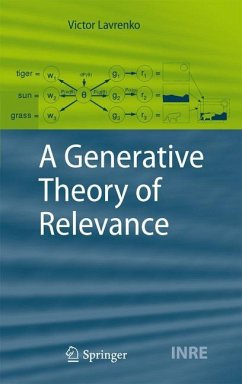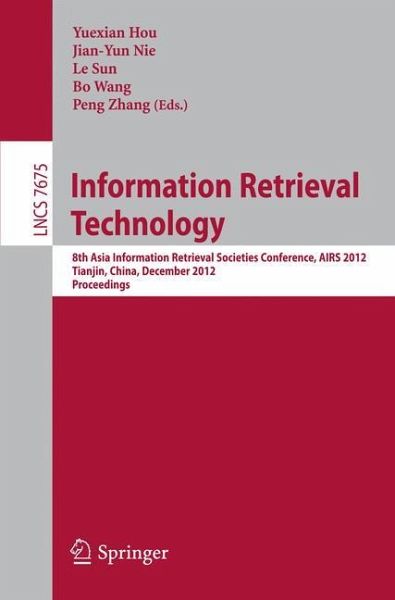
Information Retrieval Technology
8th Asia Information Retrieval Societies Conference, AIRS 2012, Tianjin, China, December 17-19, 2012, Proceedings
Herausgegeben: Hou, Yuexian; Nie, Jian-Yun; Sun, Le; Wang, Bo; Zhang, Peng

PAYBACK Punkte
19 °P sammeln!
This book constitutes the refereed proceedings of the 8th Information Retrieval Societies Conference, AIRS 2012, held in Tianjin, China, in December 2012.The 22 full papers and 26 poster presentations included in this volume were carefully reviewed and selected from 77 submissions. They are organized in topical sections named: IR models; evaluation and user studies; NLP for IR; machine learning and data mining; social media; IR applications; multimedia IT and indexing; collaborative and federated search; and the poster session.






